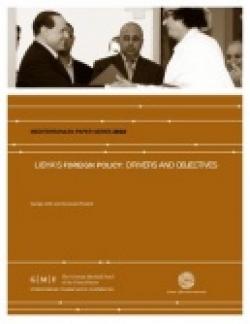Libya's Foreign Policy: Drivers and Objectives
The policy process in Libya is complex and intensely personalized around the figure of the Libyan leader, even if it also relies on a structured consultation process as well. Libya’s foreign policy fits within this paradigm as well, as our research among Libyan policymakers has demonstrated. Actual relations form four interconnected conceptual circles covering the Arab world, Africa, the West (Europe and America) and the BRICs (Brazil, Russia, India, China, etc.). Thus relations with the Arab world and Africa are suffused with ideological import, alongside Libya’s pragmatic objectives in Africa, while with Europe and America they are conditioned by pragmatic loyalty based on oil and international acceptance. With the world of the BRICs, some of Libya’s old visions of anti-imperialism have resurfaced but commercial concerns still dominate interrelationships. Overall, however, the constant and underlying theme since the 1990s has been regaining international acceptance, one which, even if its content is diametrically opposed to the patterns of that past, reflects the objectives of the 1970s and 1980s as well. And, in this mix, relations with the United States are now dominant, in the wake of the renewal of diplomatic links after many years of Libyan isolation.
-
Details
Washington, German Marshall Fund of the United States, October 2010, 42 p. -
Issue
7
Executive Summary
1. Introduction
2. Actors in Policy
3. The Intellectual Bases of Libya’s Foreign Policy
4. Colonel Qadhafi’s Views on Foreign Affairs
5. An Analysis of the Policy Process
6. The Ideological Underpinning
7. Policy Implementation
Formal Institutions
Informal Actors
Intermediaries
8. Policy Arenas
The United States and Britain
The Turnaround Post 1986
The European Dimension
The Arab and African Worlds
The Wider World: the BRICs
9. Conclusions and Policy Implications
Topic
Tag
Related content
-
Ricerca27/12/2013
Cooperation in the Mediterranean and the Middle East
leggi tutto



